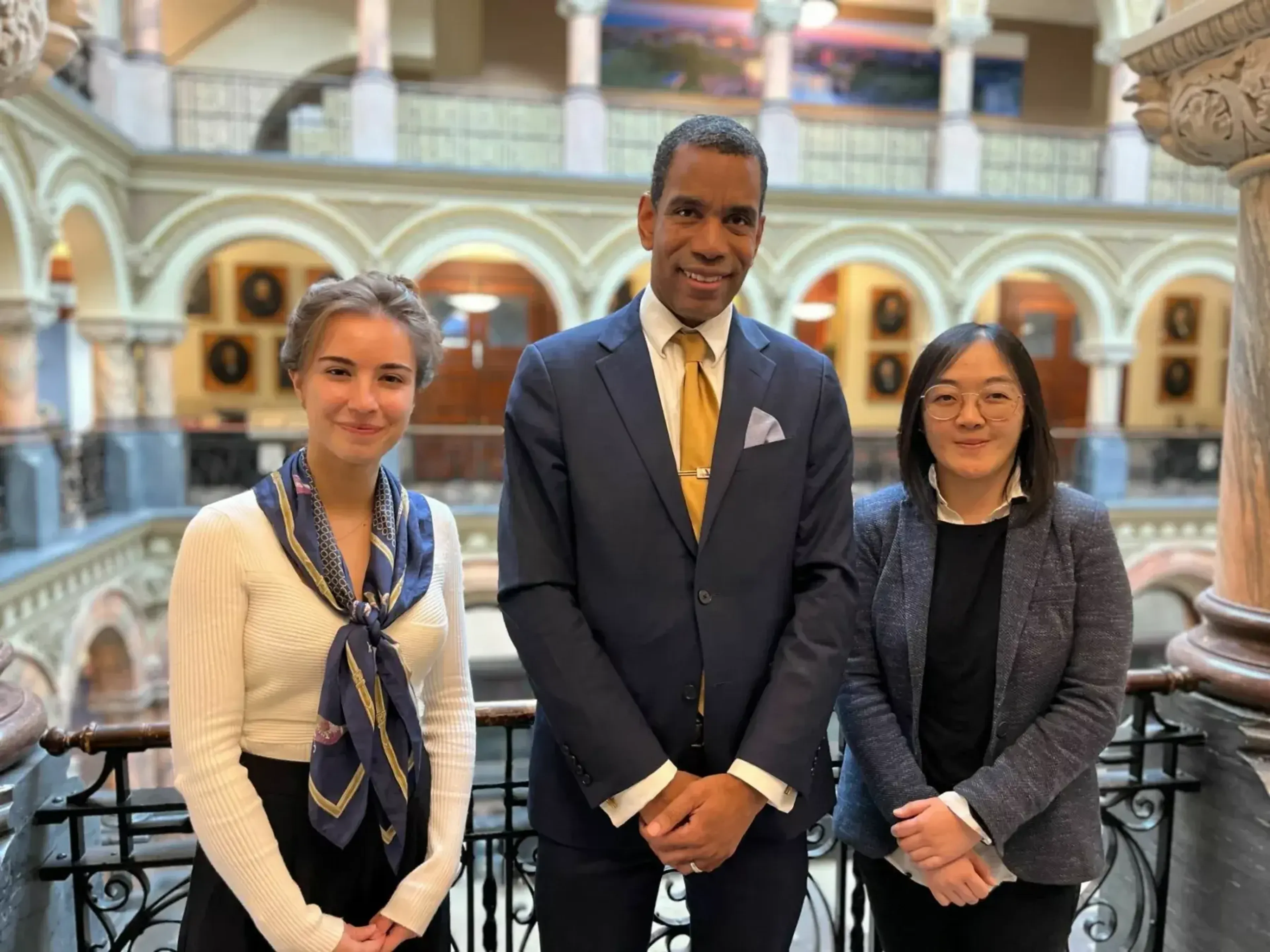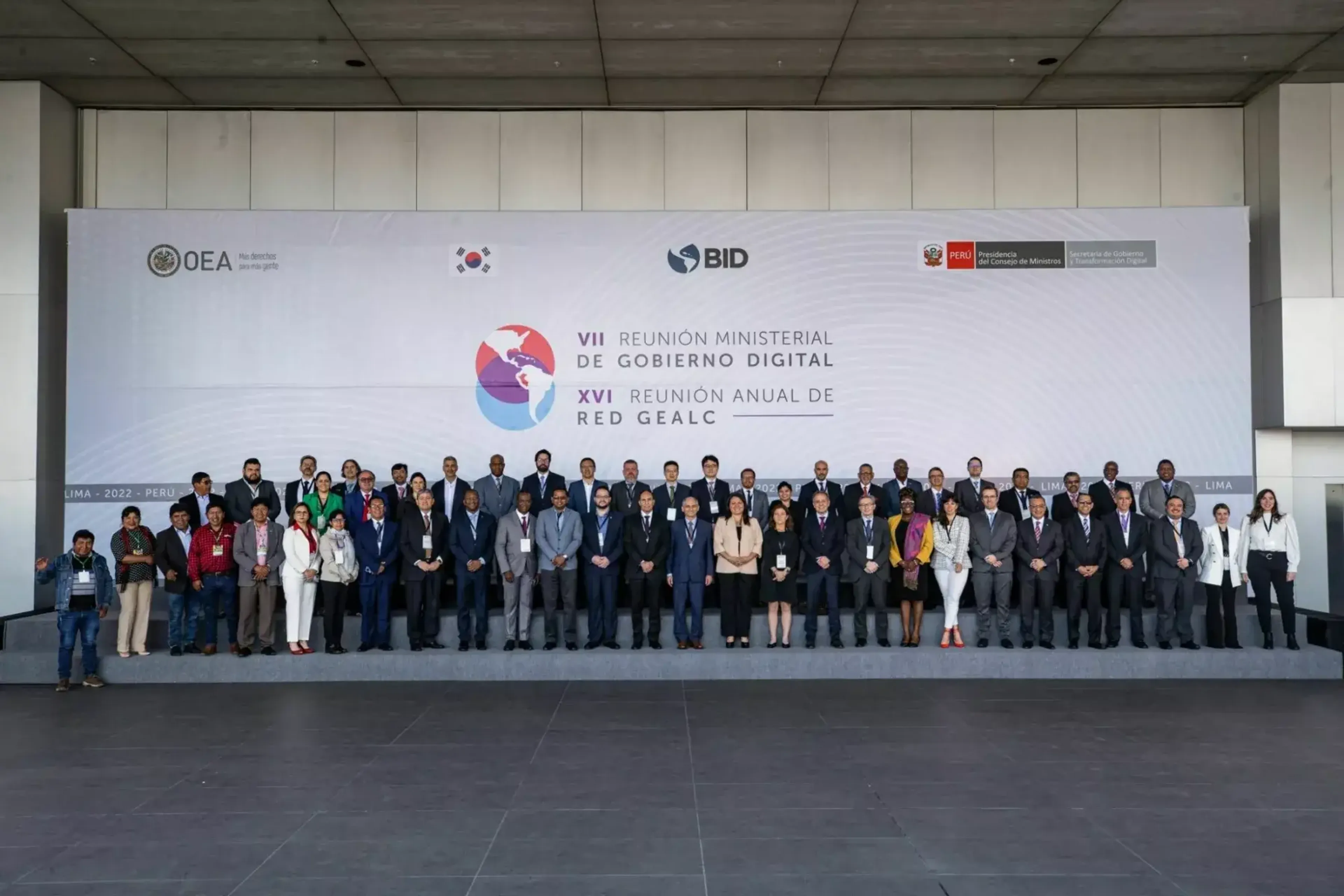
Data and design in service of the community in Maipú, Chile
Read this client story in Spanish
Maipú, one of the largest and second most populous cities in Chile, with approximately 600,000 residents, had endured years of public mismanagement and underinvestment, which eroded the internal capabilities, innovation, and motivation of its teams.
Recently, a new administration adopted a bold strategy centred on building data skills and integrating new technologies to drive change.

As a member of the Bloomberg Philanthropies City Data Alliance, Maipú achieved impact through clear deliverables, mindset shifts and cultural change. The City Data Alliance is a programme that provides multi-year operational and technical coaching to select mayors across the Americas and the Caribbean.
The City Data Alliance's support to the Mayor and his team in using data to assess needs, strengthen services and standardise policies, enabled them to embed and expand outcome-based practices in the municipality and improve services for residents.
During the past year, Public Digital has supported the Maipú team to develop beacon data services, establish standards, and form a network of data leaders within the public sector. After 12 months of hard work embodied in a new open data portal, the city is transforming its city management by leading the use of data in Chile.
Maipú's experience demonstrates how the combination of positive leadership, multidisciplinary teams, a shared purpose, and innovative methodologies can effectively and sustainably tackle complex challenges while restoring the community's trust in its institutions.
What we did
One of the city’s main priorities revolved around the perception of insecurity, which remained high despite many investments in public infrastructure and citizen security presence in the streets. The perception of insecurity has become a complex problem, with multiple causes and ramifications. Could data and service design drive new solutions?
After facilitating multiple user research sessions with the teams, we were able to identify two key user needs of residents:
- the possibility of accessing public information about citizen security in Maipú, and
- to provide support to residents when they make a citizen complaint.
The team worked on these needs to design and develop two beacon services.
The Data Security Observatory is a data service that provides information on citizen security in a comprehensive, transparent and accessible way to citizens. It also provides teams within the city with relevant data to learn more about insecurity in Maipú and make decisions for the development of better public policies.
The portal has both public access, so that citizens can visualise information on investments and citizen security projects implemented in their neighbourhoods; and private access, focused on the city security intelligence teams with more sensitive data such as the history of crimes in the city.
Follow your report is prototype web application that allows users to follow the progress of their report in real-time, from the moment they call the emergency base until the security patrol arrives and takes action. In addition, residents can receive relevant security guidance, access emergency contacts and download their case reports.
This data service has a scalable impact on the entire city. Once the update and notification logic has been tested out, there are plans to implement it in other areas, such as tracking local health appointments or the status of utility claims.



- Tomás Vodanovic, Mayor of Maipú's Municipality
We are building a different concept of local governance, putting the agenda of efficiency and public management, modernization and transparency as a priority, to transform society and contribute to the lives of its residents.
- Natalie Gonzalez Santander, Director of Centre of Government
There’s no turning back now—many of us are convinced of the importance of using data and technology effectively to ensure good local governance."
- Nicole, Department of Community Development
If it wasn't for this project and the proposal to work in multidisciplinary teams, I would have never got to meet Tere (Head of IT channels) in-depth and forge this new friendship.
Key factors
Several factors were crucial to the success of the project. Among the most important were:
- Positive leadership
Mayor Tomás' active and participatory role was critical in maintaining the teams' enthusiasm and commitment to the Bloomberg project.
From the beginning, the mayor not only motivated and empowered team members but also led the city's agenda on the use of data, presenting at seminars and conferences on the subject, and setting a clear direction towards innovation.
- Teams with purpose
The key to success consisted of a multidisciplinary team, made up of people from different areas and skills, but with a common goal: to serve the city and its citizens.
This high level of commitment and vocation allowed the team to not only meet but exceed the project's objectives, despite the scarcity of time and resources.
- Trust in the process
From the beginning, the team trusted the data services approach completely, even though it involved adopting new methodologies and disciplines they had never used before.
They were highly disciplined and enthusiastic when exploring people-centred service design, agile methodologies and the development of data services.
What we achieved
Typically, project achievements are visible at the end. What makes the Data as a Service initiative in Maipú so exciting is that significant milestones became evident throughout the 12 months of work.
Data as a service for residents: Teams no longer see data as an end in itself but as part of a service with a purpose. This approach allows for a more holistic gathering and use of data, better aligned with the genuine needs of users.
Developing new skills: Curiosity and willingness to learn were essential. The team acquired skills in user research, prototyping and agile methodologies. Some team members even taught themselves how to use APIs, tokens and good design practices.
Building multidisciplinary teams and collaborative networks: Cross-departmental collaboration and the creation of a Network of Data Leaders led to new relationships and perspectives. This approach enhanced project results and created stronger ties between the teams, which had previously worked in isolation
New tools and methodologies: One of the greatest achievements was replicating the methodologies and tools in other initiatives. This “cascade effect” allowed knowledge to be transferred to other teams, scaling up capabilities throughout the City.
Raise necessary and difficult questions: The project encouraged the teams to question and improve the handling of sensitive data, addressing key issues such as privacy and data sharing between departments. These discussions led to the team’s commitment to develop new security protocols in the near future.
Natalie Gonzalez Santander, Director of Centre of Government
"Thanks to Bloomberg Philanthropies' City Data program, we strengthened our knowledge in data usage, learned from successful experiences in other cities, and received ongoing guidance from expert professionals. This gave us the confidence to take on challenging projects that have positively transformed the organisational culture of the Municipality."

